Hero Down: Traffic Death of Patrol Deputy Marks Grim Year for Cops
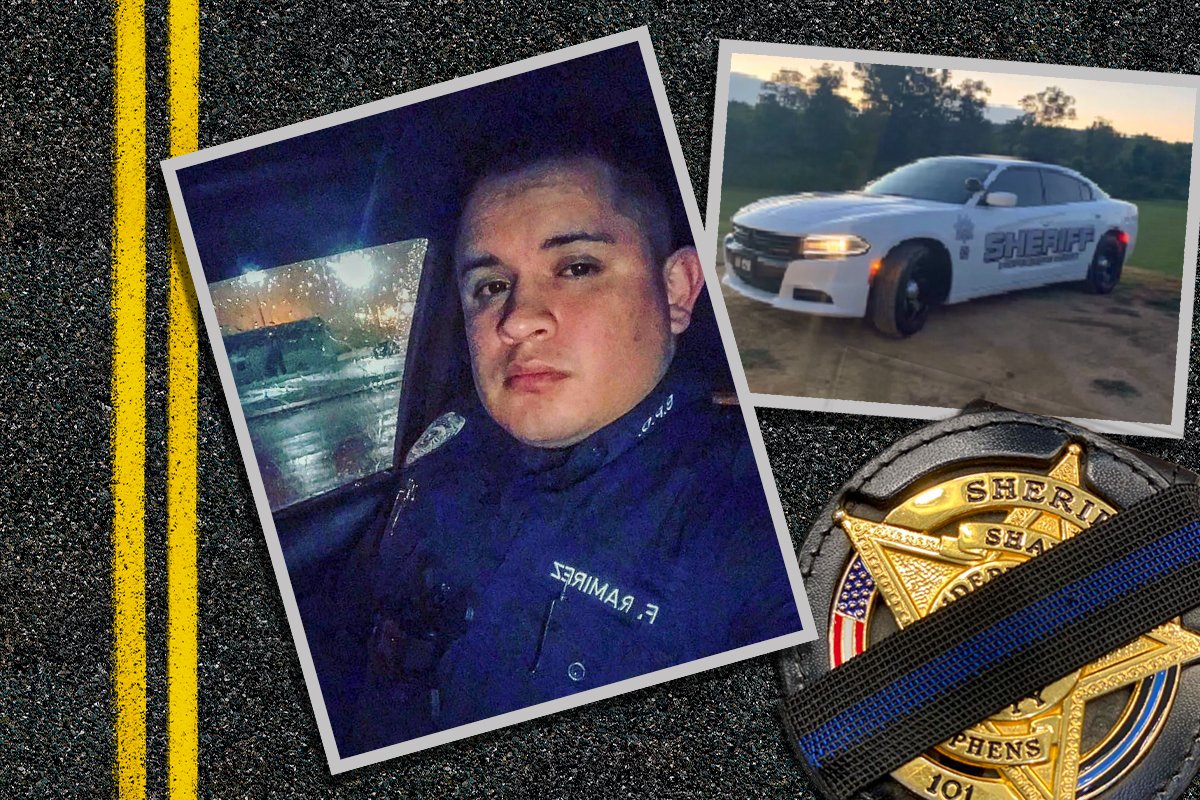
Independence County Patrol Deputy Frank Ramirez, 29, was killed Thursday, Nov. 18, 2021, when the squad car he was driving slipped off a wet Arkansas highway. Independence County Sheriff’s Office photos. Composite by Coffee or Die Magazine.
While taking a left curve along rain-slick Highway 14 in rural Arkansas on Thursday, Nov. 18, Independence County Sheriff’s Patrol Deputy Frank Ramirez’s cruiser began to slide. The Dodge Charger hit a culvert, became airborne, and then flipped on its roof, killing him.
Ramirez, 29, leaves behind a wife and two children. A Nov. 18 “Hero Down” announcement by his agency spoke to the “tremendous grief” felt by his fellow deputies, his family, and the communities he loyally served.
He also becomes a grim addition to the rising number of law enforcement officers killed in vehicular accidents this year. It’s the highest toll in a decade, according to the National Law Enforcement Officers Memorial Fund’s midyear fatalities report.
Second only to COVID-19 as a cop killer, vehicle mishaps claimed the lives of 38 officers between Jan. 1 and June 30, 2021, a 58% hike from the traffic fatalities recorded during the same six-month span in 2020.
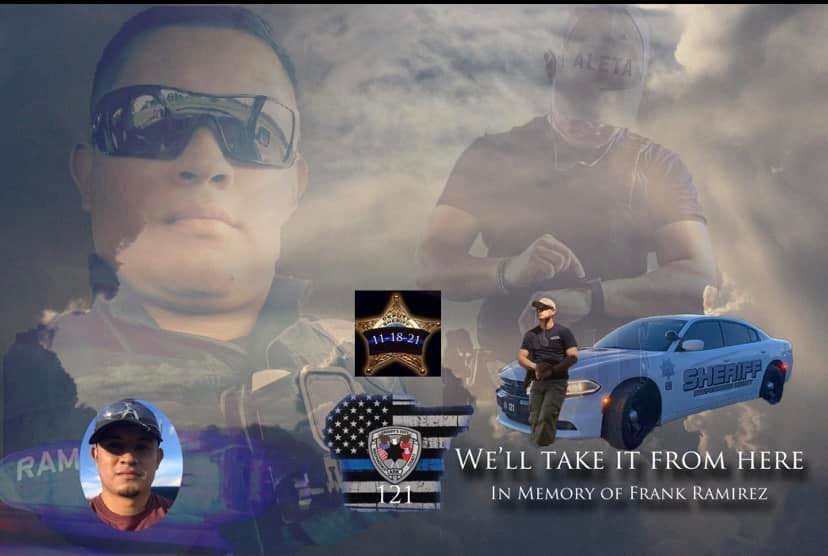
The leading cause of these traffic deaths is roadside accidents in which officers were hit while assisting motorists or investigating crashes. Those incidents claimed 19 lives during the first six months of 2021.
Dr. Hope Tiesman, a National Institute for Occupational Safety and Health epidemiologist, told Coffee or Die Magazine that the 2021 death count is bad, but it’s not the worst year for law enforcement traffic fatalities.
“In 2006, there were 73 deaths, and in 2020 this dropped to 42 — the lowest number during this time period,” Tiesman said in an email.
Despite that lull in traffic fatalities, 498 law enforcement officers lost their lives to vehicle crashes between 2011 and 2020, accounting for 28% of all line-of-duty deaths, according to NIOSH.
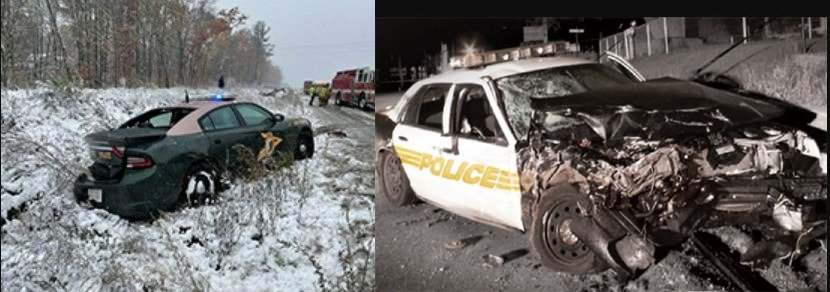
Tiesman won’t speculate about why law enforcement traffic fatalities began drifting up last year, but she points to a key problem that might be in play: a decrease in police staffing that’s forcing more officers to work overtime, cutting into hours usually reserved for recuperative sleep.
A recent Police Executive Research Forum survey found 200 agencies nationwide were struggling to keep officers on the job. The data showed a 45% increase in the retirement rate and a nearly 20% rise in resignations in 2020-21, compared with previous years.
“This means there are fewer cops to operate on a 24/7 basis, and many may be pulling significant overtime and multiple shifts. One possible reason for the increase in crash fatalities may simply be fatigued officers pulling more shifts with little time to recoup sleep,” Tiesman said.
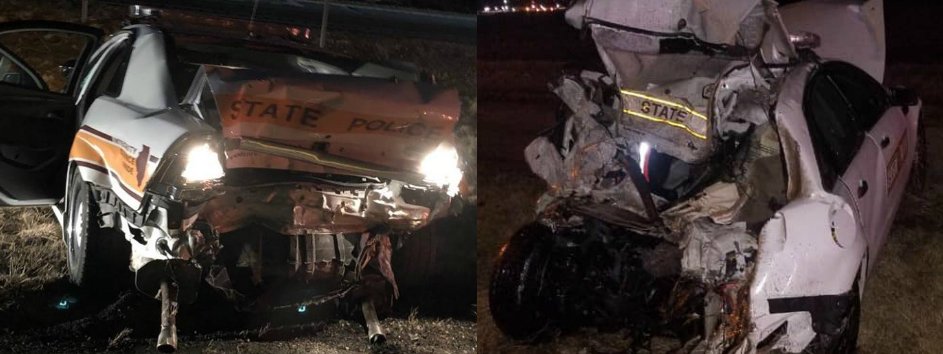
A 2011 NIOSH study on law enforcement traffic deaths and injuries also might open a window into the rising number of fatalities.
Randomly surveying 1,500 sworn officers from 60 agencies in Iowa, researchers saw a few red flags, such as the fact that roughly one out of every five officers didn’t wear their seatbelts while operating squad cars. Previous research has determined that using seat belts reduces the death rate in collisions.
The NIOSH survey also found that less than 10% of officers wore reflective gear while working outside their cruisers, making it harder for other motorists to spot them.
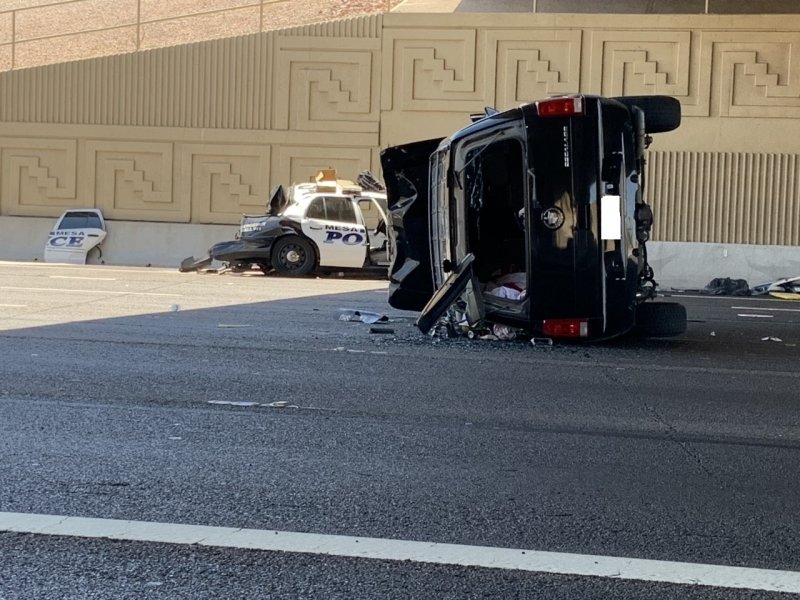
Shortly before NIOSH began its Iowa canvass, the Las Vegas Metropolitan Police Department suffered three officer deaths tied to traffic accidents in the span of seven months in 2009:
- Officer James “Jamie” Le’Treall Manor, 28, died May 7, 2009, when he collided with another vehicle while responding to a 911 call.
- Officer Milburn “Milli” Wilbur Beitel III, 30, swerved to avoid another vehicle and his cruiser flipped, ejecting him. He died the next day, Oct. 8, 2009.
- Officer Daniel J. Leach, 49, was killed when his prisoner transport van hit another vehicle Nov. 21, 2009.
The trio of tragedies prodded the department to revamp its driving policies and training. Since the reforms were implemented in 2010, not one Las Vegas officer has been killed in an on-duty traffic accident.
The key reform might’ve been a cap on how fast police officers are allowed to drive. The new reg prohibits a Las Vegas cop from driving 20 miles per hour over the speed limit, unless they’re pursuing a suspected violent criminal. Once the department’s aircraft are overhead and can follow the fleeing driver, pursuing squad cars are supposed to peel off.
“It’s the right thing, because you don’t want to put the public unnecessarily at risk to somebody driving dangerously because police are pursuing them for a minor crime,” said Larry Hadfield, a Marine Corps veteran who’s spent more than two decades in the Las Vegas force as a patrol officer, police academy instructor, and field training officer.
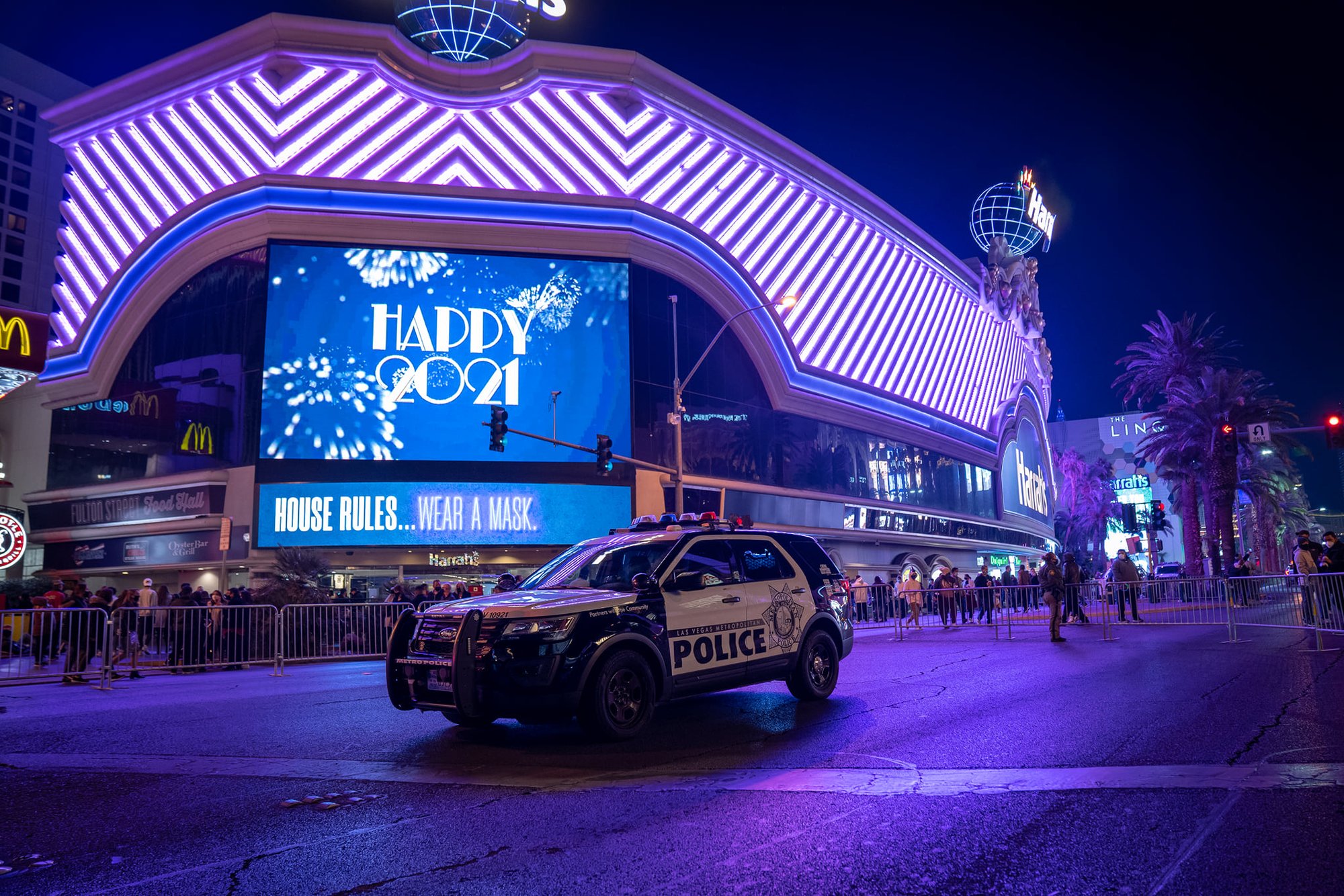
Hadfield said that seat belt use is now mandatory in a cruiser, and no one is allowed to talk on the cell phone while operating a motor vehicle.
Las Vegas leaders noticed immediate results. Between 2007 and 2009, Las Vegas officers were involved in 1,616 collisions. That fell to 1,292 from 2010 to 2013. And crash and injury costs plummeted from $5.4 million to $4.3 million.
NIOSH was so impressed with the efforts Las Vegas took to protect its officers, the federal safety watchdogs dubbed it a national model for other departments to emulate.
“Our study found that the Las Vegas program was associated with lower crash and injury rates across the entire agency, and these decreases were even sharper in the primary population of interest — patrol officers,” said NIOSH’s Tiesman.
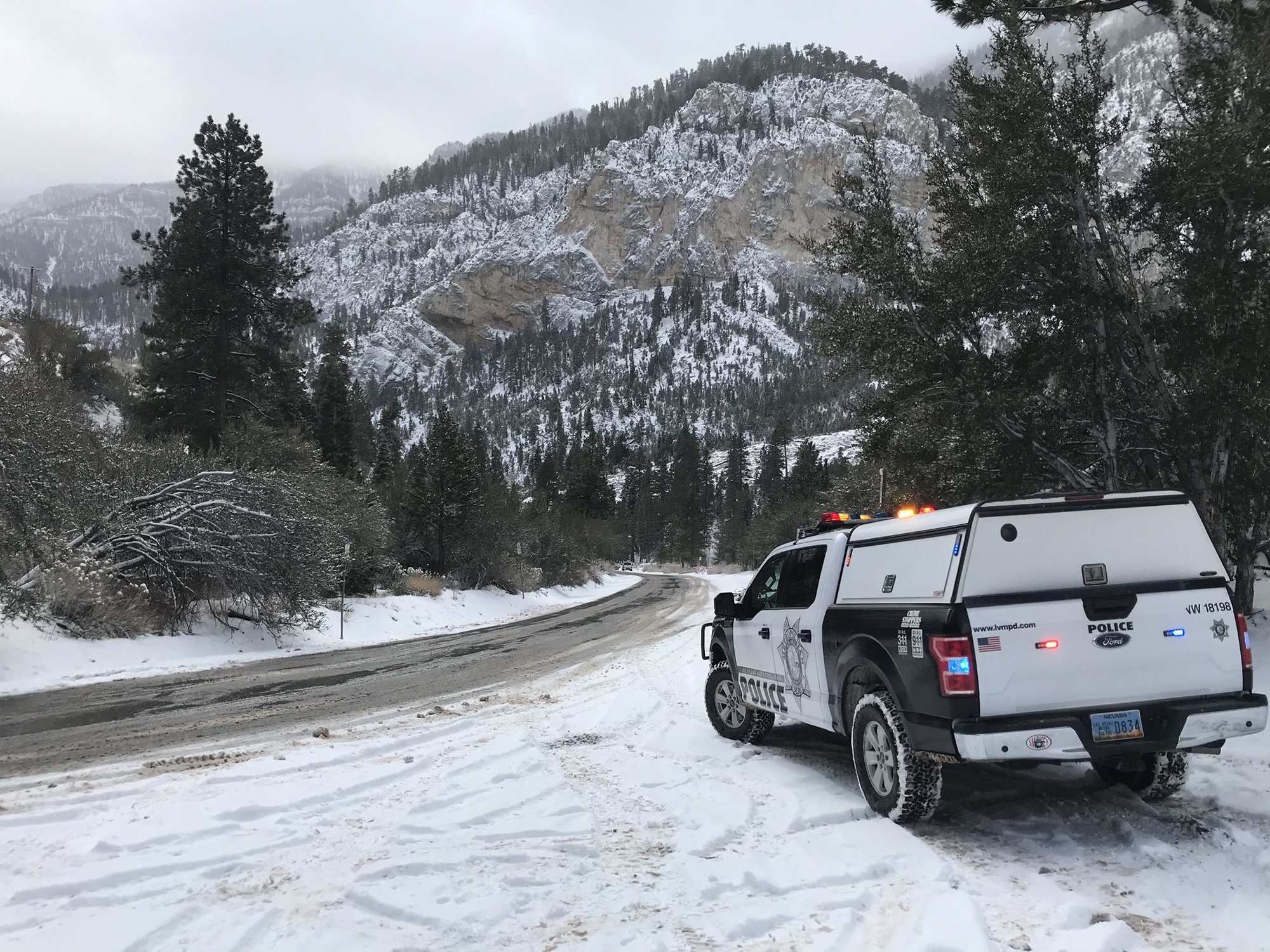
She told Coffee or Die that a key reform was making supervisors conduct intermittent ride-alongs with patrol officers to make sure cops were complying with the regulations. Sergeants must complete a driving evaluation on all officers within the first week of their assignment to the department. Results go in the officer’s work file.
Las Vegas patrol officers, corrections officers, and even some non-uniformed employees also must pass the Emergency Vehicle Operations Course, a program that includes emergency medical technicians and firefighters.
Officers first encounter the EVOC program in the police academy and must recertify annually for their initial three years on the force. After that, they continue to refresh their training with online requirements and recertify every two years.
Uniformed sergeants and lieutenants take a special online course for supervisors and also must pass biennial re-certifications.
More than 200 law enforcement officers died due to struck-by-vehicle incidents from 2005-2019. Learn more about this topic in our infographic: https://t.co/yDviq2NW5Z #safety #driversafety #pedestriansafety pic.twitter.com/4RQ88HQDMN
— NIOSH Motor Vehicle (@NIOSH_MVSafety) November 18, 2021
Las Vegas backs up its rules, regulations, and certification program with a “Belt Up” marketing campaign. Decals are plastered on squad cars. Posters hang in offices and parking garages. Signs on exit gates tell officers how many days it’s been since a station recorded a traffic accident.
“NIOSH also has developed an infographic that summarizes these recommendations and can be printed from the NIOSH website and used by agencies for daily briefings, trainings, and posted in a prominent location,” said Tiesman.
Read Next: Felony Dropped Against Cop Who Mistook Her Pistol for a Taser
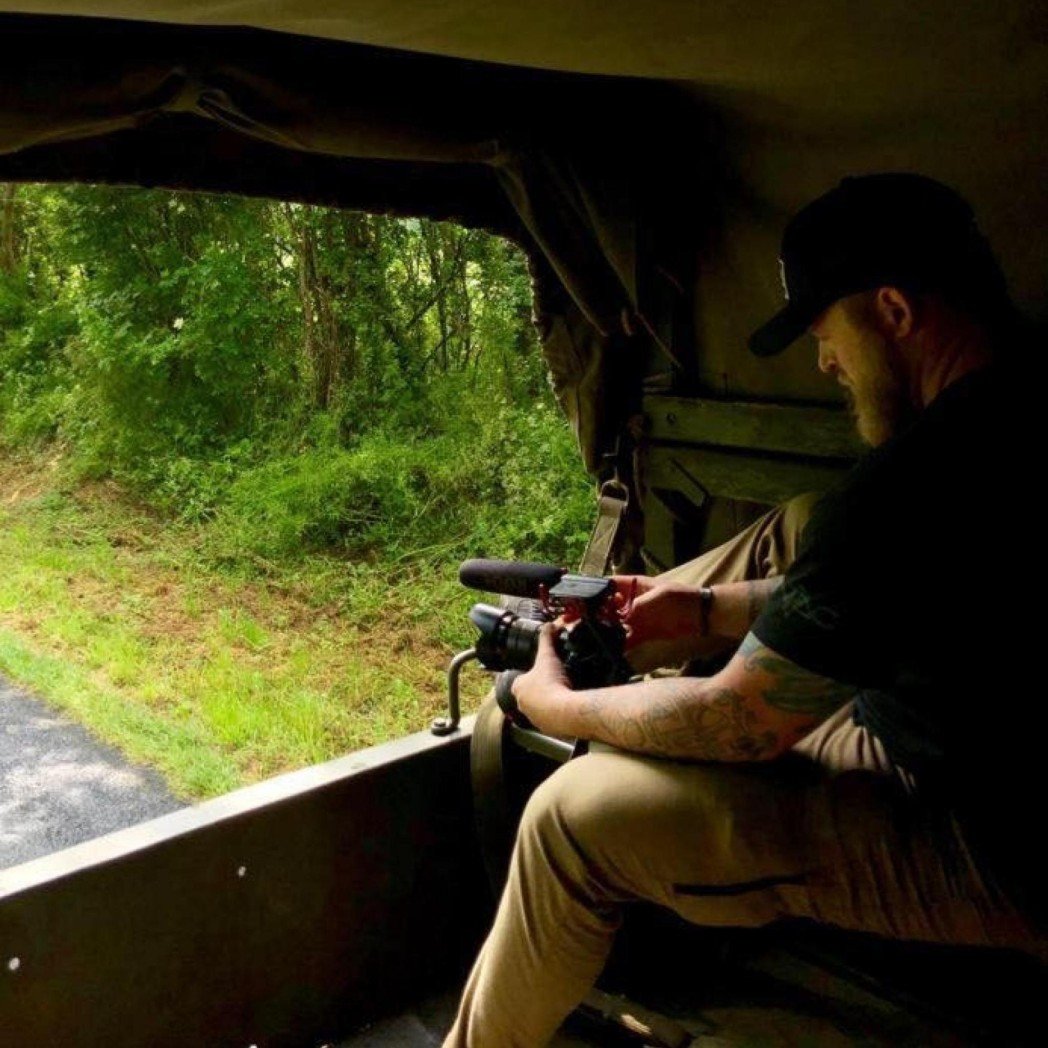
Joshua Skovlund is a former staff writer for Coffee or Die. He covered the 75th anniversary of D-Day in France, multinational military exercises in Germany, and civil unrest during the 2020 riots in Minneapolis. Born and raised in small-town South Dakota, he grew up playing football and soccer before serving as a forward observer in the US Army. After leaving the service, he worked as a personal trainer while earning his paramedic license. After five years as in paramedicine, he transitioned to a career in multimedia journalism. Joshua is married with two children.
BRCC and Bad Moon Print Press team up for an exclusive, limited-edition T-shirt design!
BRCC partners with Team Room Design for an exclusive T-shirt release!
Thirty Seconds Out has partnered with BRCC for an exclusive shirt design invoking the God of Winter.
Lucas O'Hara of Grizzly Forge has teamed up with BRCC for a badass, exclusive Shirt Club T-shirt design featuring his most popular knife and tiomahawk.
Coffee or Die sits down with one of the graphic designers behind Black Rifle Coffee's signature look and vibe.
Biden will award the Medal of Honor to a Vietnam War Army helicopter pilot who risked his life to save a reconnaissance team from almost certain death.
Ever wonder how much Jack Mandaville would f*ck sh*t up if he went back in time? The American Revolution didn't even see him coming.
A nearly 200-year-old West Point time capsule that at first appeared to yield little more than dust contains hidden treasure, the US Military Academy said.












